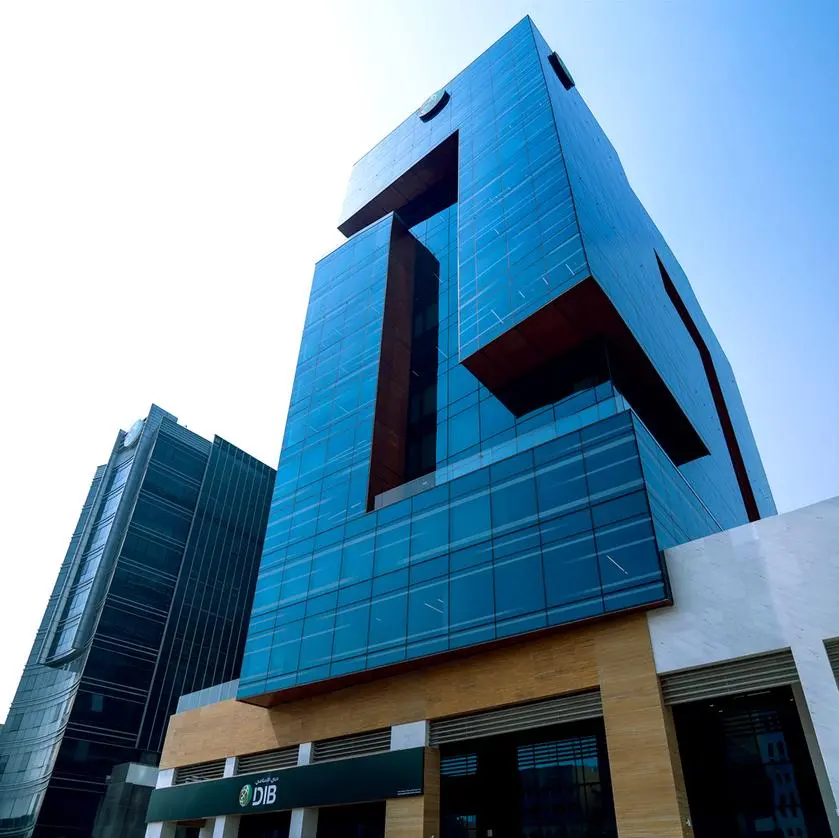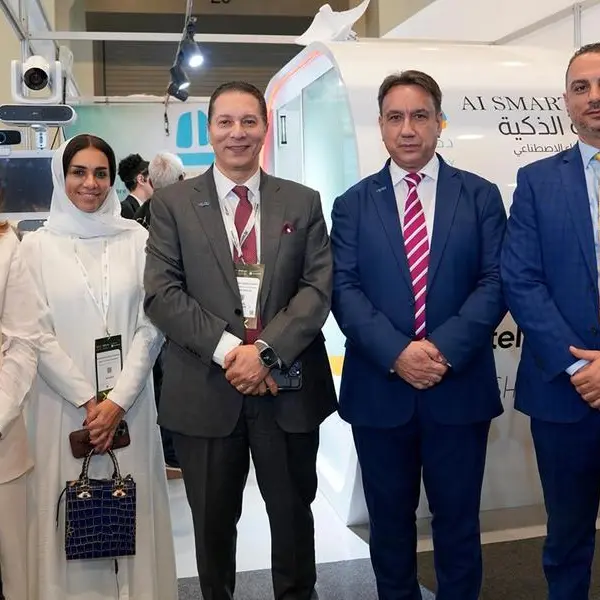Fitch Ratings-Dubai/London-11 June 2015
Fitch Ratings has affirmed Jordan-based Arab Bank PLC's (Arab Bank) Long-term Issuer Default Rating (IDR) at 'BBB-' and Viability Rating (VR) at 'bbb-', and Arab Bank Australia Limited's (ABAL) Long-term IDR at 'BBB-' and VR at 'bb+'. The Outlook on both IDRs is Negative. A full list of rating actions is available at the end of this rating action commentary.
KEY RATING DRIVERS - IDRS, SUPPORT RATINGS AND SUPPORT RATING FLOORS AND VRS
Arab Bank's IDRs are driven by its standalone strength as indicated by its VR. The ratings reflect the bank's geographic diversification, with notable operations (branches, subsidiaries and affiliates) in the Gulf Cooperation Council (GCC), North Africa and Europe. The bank's operations in the GCC countries and outside the MENA region, and its holding of liquid assets mainly in Europe (bank deposits along with some high-quality investment securities), enable the bank to be rated higher than its peers in Jordan.
The bank's geographic diversification, solid capitalisation, conservative overall risk appetite, stable funding profile, structure of its network and affiliates, and liquidity management policies help mitigate risks to its credit profile associated with its domicile. Arab Bank's IDRs are linked to but not capped by Fitch's view of Jordanian sovereign risk.
Fitch considers that some of the risks associated with parts of the bank's operations across the MENA region have lessened slightly, in particular in 'Arab Spring' countries. Asset quality is sound and has been stable despite turbulence in the region. Profitability is strengthening mainly because of lower impairment charges. Arab Bank has maintained its conservative lending practices and emphasis on maintaining high levels of liquidity. Nonetheless, the operating environment in Jordan remains difficult and given instability in the region, is unlikely to improve materially in the near term. In addition, we take into account the significant underlying risks of operating in weaker MENA countries, (eg, Egypt, Tunisia).
The ruling against Arab Bank in the US in September 2014, which the bank is planning to appeal, and the subsequent denied motion for a new trial in April 2015, is a further example of banks' increasing exposure to litigation and other conduct risks. Uncertainty about the level of fines and potential related business restrictions is a significant current risk for banks generally, especially those with operations in higher-risk markets. Fitch has not factored any potential loss from this litigation into the ratings because of uncertainty regarding the final outcome. At this stage it is difficult to assess potential implications for Arab Bank, financial or reputational or otherwise.
The Negative Outlook reflects some residual risks to Arab Bank's credit profile arising from its domicile, operations in higher risk MENA markets, and uncertainty about the level of fines and outcome of the litigation. Fitch would downgrade the ratings if any of these risks materially increased.
The Support Rating and Support Rating Floor reflect Fitch's opinion that support for Arab Bank from the Kingdom of Jordan, if required, is possible, but given Arab Bank's size, cannot be relied upon. The bank has several core shareholders, but it is difficult to assess their willingness and ability to provide support at all times.
ABAL's IDRs and Support Rating reflect Fitch's view that it is a core subsidiary of its parent, Arab Bank. In the agency's opinion, there is a high likelihood of support from Arab Bank reflecting its commitment to provide support if needed in light of the potential reputational risk for the wider group if Arab Bank did not support one of its subsidiaries. In addition, ABAL and Arab Bank maintain a close relationship, sharing the same brand name and strategy. The group keeps a very liquid balance sheet, and is well placed to provide support, especially given ABAL's small size relative to its parent. ABAL made up just 2.2% of the group's total assets at the financial year ending 31 December 2014 (end-2014).
ABAL's VR reflects its moderate company profile, improving asset quality albeit with significant levels of concentrations, and a funding and liquidity profile that is sound for its rating. Its VR also considers ABAL's weak operating profitability, which combined with risk-weighted asset growth could increase the pressure on capitalisation.
ABAL's moderate company profile reflects a limited franchise in the Australian banking market, product and customer concentrations, and a higher susceptibility to economic changes and competitive pressures. ABAL's weak operating profitability is likely to remain under pressure due to the fierce competition in Australia's mortgage market and a low interest rate environment which could challenge revenue growth in 2015. ABAL's weak profitability may pressure ABAL's capital ratios. ABAL's Fitch Core Capital of 15.0% at end-2014 was strong relative to peers but has fallen from 16.6% in 2013. However, Fitch expects ABAL's parent to provide capital, if needed.
ABAL has a high level of single name and industry concentration risks in its credit exposures, which could make the bank more susceptible to larger credit losses relative to domestic peers. Fitch expects further asset quality improvements following implementation of tighter risk controls although the rate of decline of impaired loans may slow. Asset quality is still weak relative to peers although lower impairment charges should support profitability.
ABAL's funding and liquidity profile is likely to remain sound for its rating in 2015. Fitch expects the bank's loan book to be fully funded by customer deposits. Single name concentrations within the bank's deposits are a result of its niche business model and small size. However, a very liquid balance sheet mitigates some of the risk.
RATING SENSITIVITIES - IDRS, SUPPORT RATINGS AND SUPPORT RATING FLOORS AND VRS
An adverse change in Fitch's assessment of Arab Bank's ability to offset sovereign-related risks (eg banking sector intervention risk or transfer and convertibility risk) or an increase in economic and political risks in the broader MENA region could also result in downward pressure on the bank's IDRs. In addition, a change in the bank's allocation of assets leading to an increase in its exposure to weaker, lower-rated, sovereigns relative to equity would also be negative for the ratings.
The bank's ratings are sensitive to the final outcome of the on-going litigation in the US. Should the final outcome be negative for the bank, and should the financial cost of a potential settlement or penalty have a material negative impact on the bank's capitalisation or should the litigation negatively affect the franchise and reputation of the bank, the ratings could be downgraded.
Conversely, we could revise the Outlook to Stable if there is more clarity regarding the final outcome of the litigation and Fitch concludes that bank is able to absorb its potential negative implications with no material negative impact on its capital position or franchise.
As Fitch does not factor in any support from the Jordanian sovereign, the Support Rating and Support Rating Floor are at their lowest levels. Fitch considers these factors are unlikely to change.
ABAL's IDRs would be downgraded if Arab Bank's IDRs were downgraded, or if there were a change in Fitch's view of ABAL's role as a core subsidiary of Arab Bank.
ABAL's VR is also sensitive to an assessment of the ordinary support of its parent if Arab Bank were to be downgraded. A weakening in ABAL's capitalisation could result in a downgrade of the VR. Capital ratios appear solid but need to be viewed in the context of ABAL's substantial concentration risks, balance sheet growth and lack of operating profit generation. A significant deterioration in ABAL's funding and liquidity profile could also lead to negative rating action. An improvement in franchise and business diversity without a substantial negative impact on risk appetite and asset quality would have a positive impact on ABAL's VR although Fitch believes this is unlikely over the rating horizon.
The rating actions are as follows:
Arab Bank PLC:
Long-term IDR affirmed at 'BBB-'; Outlook Negative
Short-term IDR affirmed at 'F3'
Viability Rating affirmed at 'bbb-'
Support Rating affirmed at '5'
Support Rating Floor affirmed at 'No Floor'
Arab Bank Australia Limited:
Long-term IDR affirmed at 'BBB-'; Outlook Negative
Short-term IDR affirmed at 'F3'
Viability Rating affirmed at 'bb+'
Support Rating affirmed at '2'
-Ends-
Contact:
Primary Analyst (Arab Bank PLC)
Redmond Ramsdale
Director
+971 4 424 1202
Fitch Ratings Limited
Al Thuraya Tower 1, Office 1805 and 1806
Media City, PO Box 502030, Dubai
Primary Analyst (Arab Bank Australia Limited)
Andrea Jaehne
Director
+61 2 8256 0343
Fitch Australia Pty. Ltd.
Level 15, 77 King Street, Sydney NSW 2000
Secondary Analyst (Arab Bank PLC)
Zeinab Abdalla
Analyst
+971 4 424 1210
Secondary Analyst (Arab Bank Australia Limited)
Tim Roche
Senior Director
+61 2 8256 0310
Committee Chairperson
Artur Szeski
Senior Director
+48 22 338 6292
Media Relations: Elaine Bailey, London, Tel: +44 203 530 1153, Email: elaine.bailey@fitchratings.com.
© Press Release 2015



















